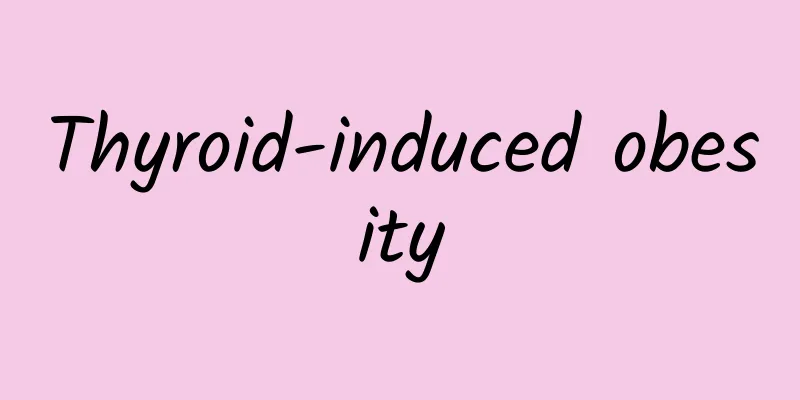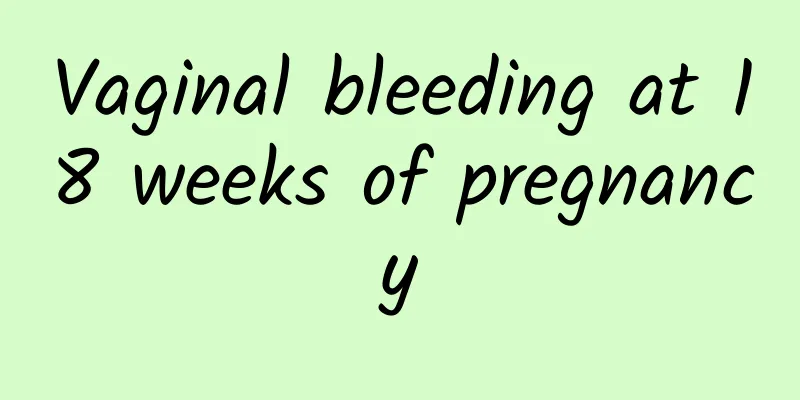When the weather is hot, you may experience chest tightness and shortness of breath, which may be a sign of these diseases!

|
With the increasing pressure of social life and the accelerated pace of our lives, it is difficult for many of us to find free time to exercise after work. Many people experience chest tightness and shortness of breath. So what causes chest tightness and shortness of breath? What causes chest tightness and shortness of breath? Chest tightness and shortness of breath is a common respiratory disease. There are two causes of chest tightness and shortness of breath: one is functional chest tightness and shortness of breath, and the other is caused by pathological reasons. 1. Functional chest tightness (i.e. chest tightness without organic disease): Staying in a room with closed doors and windows and poor air circulation for a long time, or encountering some unpleasant things, often causes feelings of chest tightness and fatigue. After a short rest, opening windows for ventilation or going outside to breathe fresh air, relaxing your mind and regulating your emotions, you will soon return to normal. This type of chest tightness can be said to be functional chest tightness, and there is no need to worry or seek treatment. 2. Pathological chest tightness (i.e. chest tightness caused by organic lesions): Chest tightness can not only be physiological, but can also be caused by diseases in certain organs in the body, i.e. pathological chest tightness. like: Respiratory obstruction: tumors in the trachea and bronchus, tracheal stenosis, external pressure on the trachea (thyroid enlargement, tumors in the mediastinum); Lung diseases: emphysema, bronchitis, asthma, atelectasis, pulmonary infarction, pneumothorax; Heart disease: some congenital heart diseases, rheumatic heart valve disease, coronary heart disease, heart tumors (rarely); Diaphragmatic diseases: diaphragmatic bulging, diaphragmatic paralysis; Pathological chest tightness can occur suddenly or slowly. Most of the sudden occurrences are due to acute traumatic or spontaneous pneumothorax, acute asthma, acute foreign body in the trachea, acute heart attack, acute pulmonary infarction, etc. Chronic chest tightness is a condition in which symptoms gradually worsen as the disease progresses. Chest tightness in children mostly indicates congenital heart disease or mediastinal tumors; chest tightness in young people mostly indicates spontaneous pneumothorax, mediastinal tumors, or rheumatic heart valvular disease; chest tightness in the elderly mostly indicates emphysema, coronary heart disease, etc. Five principles of dietary therapy for the elderly Chest tightness and shortness of breath in the elderly often cause them to experience palpitations, difficulty breathing, precordial pain and general fatigue, etc. It is also easy to cause a variety of symptoms such as excitement, insomnia, sweating, trembling, dizziness, and nightmares in the elderly. For the elderly who suffer from chest tightness and shortness of breath, in order to live a relaxed and comfortable life, in addition to seeking medical treatment, they should also pay attention to dietary therapy. 1. Eat more foods that can remove dryness and moisten the lungs The elderly usually choose foods that can strengthen the spleen, benefit the lungs, nourish the kidneys, regulate qi, and resolve phlegm, such as loquat, orange, pear, lily, monk fruit, jujube, lotus seeds, almonds, walnuts, honey, white fungus, etc. They help to strengthen their physical fitness, have the effects of relieving cough, removing phlegm, relieving spasms, clearing away heat, and moistening the lungs, and have a certain effect on preventing and treating chronic heart and lung diseases. 2. Eat “easy to digest” foods regularly Elderly people with poor heart function have decreased blood circulation, gastrointestinal congestion, and reduced digestion and absorption functions. Therefore, the food they eat should be easily digestible. 3. "Limited salt and low fat" daily diet Limiting sodium salt intake can reduce the heart burden of the elderly, prevent heart failure, and avoid edema; it is advisable to consume less than 3 grams of salt per day, and eat less high-salt foods, such as pickles and preserved products. A low-fat diet is beneficial to the digestion of the elderly's stomach and intestines and reduces the burden on the gastrointestinal tract and heart; a high fat content can easily cause increased blood lipids and blood viscosity in the elderly, slow local blood flow, and aggravate heart and lung diseases. 4. Comprehensive attention to "balanced nutrition" Ensure adequate supply of calories, high-quality protein and vitamins. Foods such as dairy protein, lean meat, fish, vegetables, and fruits can be eaten. Vitamins A, B, C, etc. can protect the myocardium and are beneficial to the recovery of myocardial damage. 5. The best way to eat small and frequent meals Elderly people with poor heart function should not eat too much to reduce excessive gastrointestinal fullness and diaphragm elevation after meals, and avoid increased heart workload. Dinner should be eaten early and should be light. Do not eat or drink much other food or water after dinner. |
<<: What causes chest tightness at night? what to do?
>>: Can bloating cause chest tightness? Causes of bloating
Recommend
Why does a man’s urine turn yellow? What causes it?
The condition of a man's urine often reflects...
What are the treatments for infertility?
When it comes to the issue of infertility, many f...
What to do if the femoral head hurts
The femoral head is also a part of the body. When ...
What causes intrauterine infection?
The harm of intrauterine infection is relatively ...
Urticaria vaccine precautions
In order to ensure that the baby can grow up heal...
Can egg white remove stretch marks?
Stretch marks are gradually formed during pregnan...
How to take birth control pills after the first time
There are many methods of contraception, such as ...
What does diastolic pressure mean?
Diastolic blood pressure is a very important medi...
Causes of trigeminal neuralgia
We all know that the trigeminal nerve is a critic...
What are the symptoms of patent foramen ovale?
The foramen ovale is a body tissue that everyone ...
Benefits of Massaging Yongquan Point
In fact, in life, many people pay great attention...
Symptoms of crystalluria
Anyone who has some understanding of human urine ...
How is gastric erosion formed? Long-term gastritis needs attention
Many people have stomach problems, especially gas...
Can cystitis cause infertility?
There is a question that perhaps women are very c...
Symptoms and treatment of myocarditis
Myocarditis is extremely painful, people may feel...









